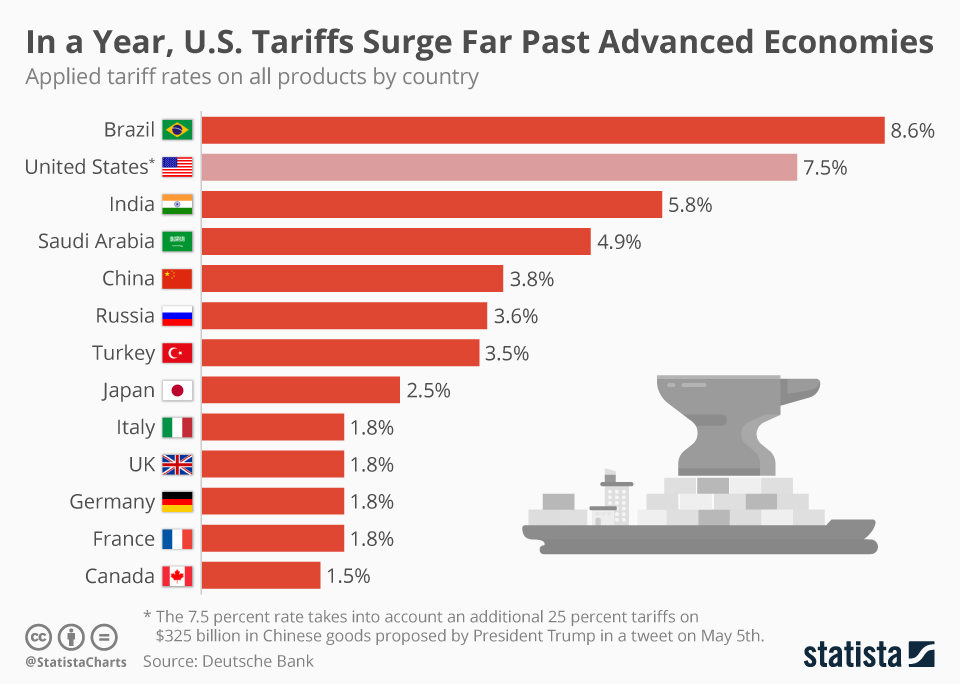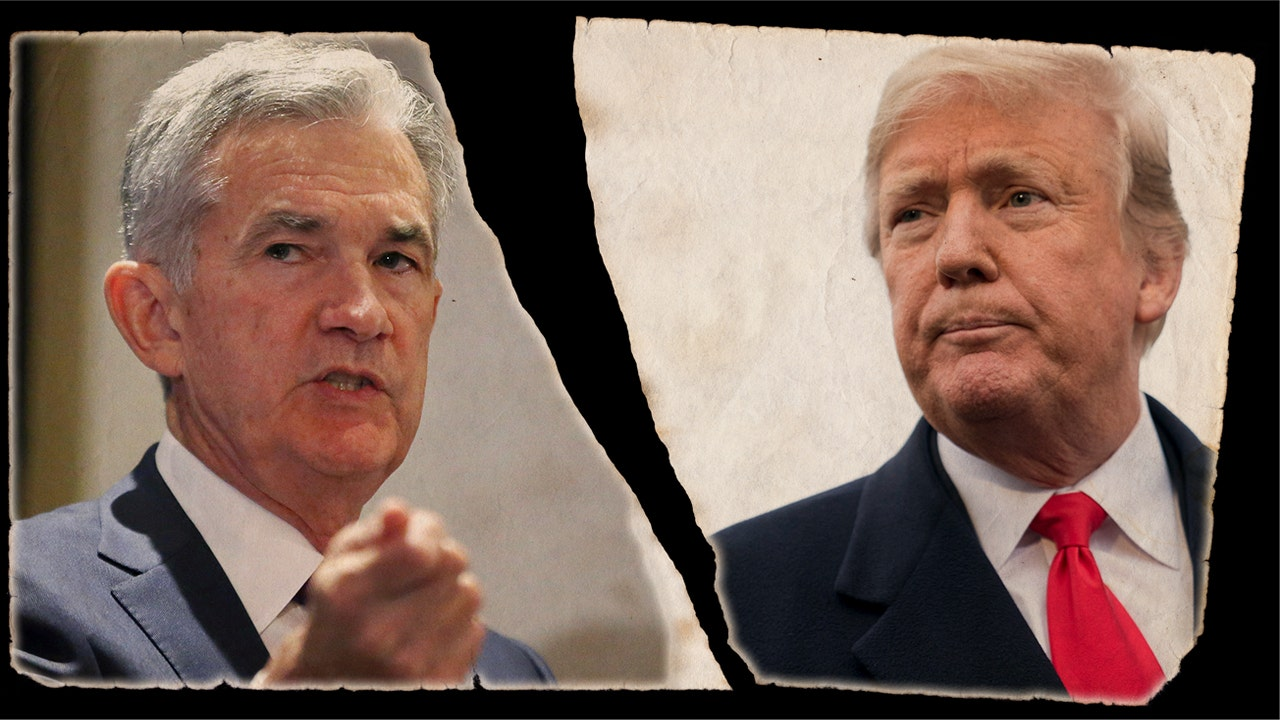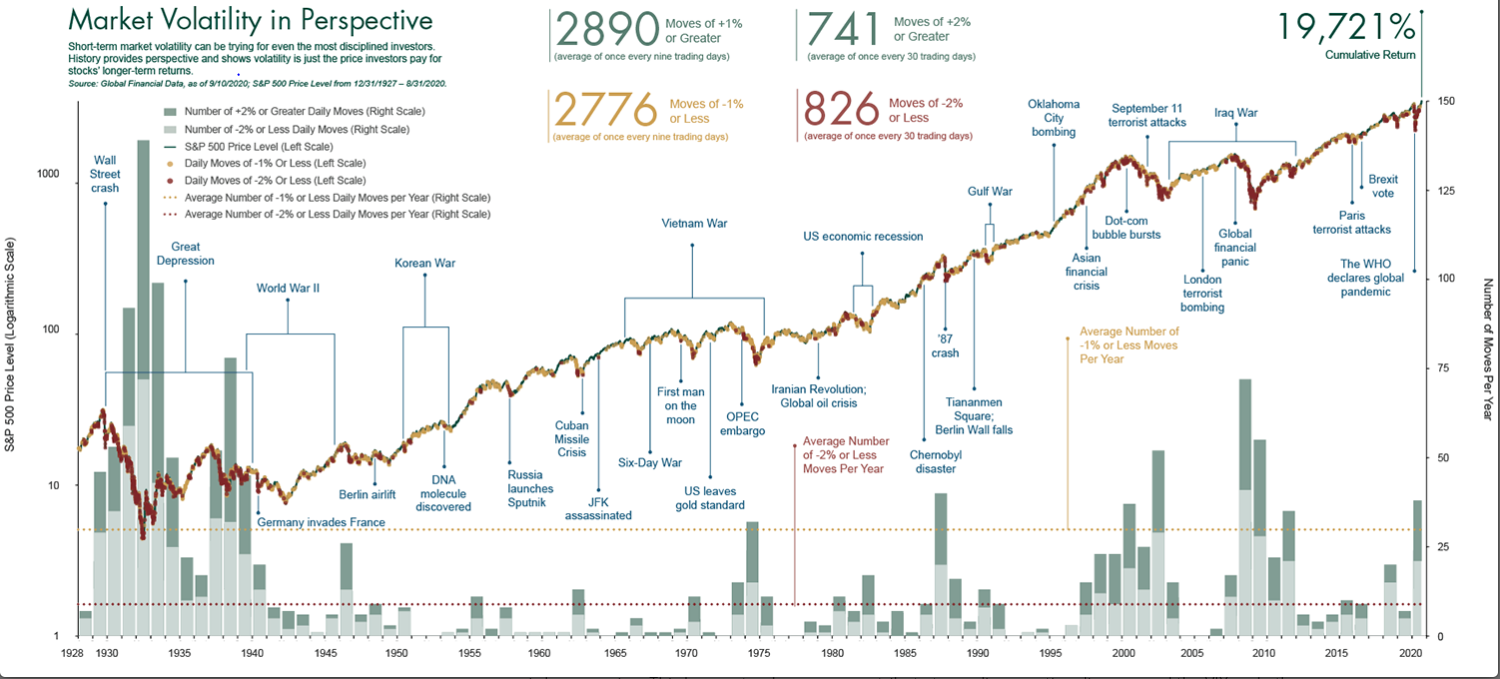In the ongoing debate about tariffs and the U.S. economy, Senator Rick Scott has become a vocal advocate of the previous Trump administration’s trade policies. He argues that imposing tariffs can effectively level the playing field for American workers, allowing them to compete against foreign industries without facing unfair advantages. By pushing for aggressive U.S. trade policy reforms, particularly against China, Scott believes that American manufacturers can thrive while simultaneously reducing trade deficits. However, critics, including many economists, caution that these tariffs might inadvertently harm the very economy they aim to protect. As the nation grapples with the implications of these economic strategies, the discussion about tariffs and their true impact on U.S. prosperity continues to evolve.
When looking at the broader picture of trade regulations and their influence on the American financial landscape, it’s essential to examine the impact of protective measures like tariffs on domestic productivity. Policymakers and economic analysts often engage in heated discussions about the necessity of trade barriers in bolstering local industries, particularly in the context of international competition with nations like China. Proponents of this approach, including influential figures like Rick Scott, believe these measures are pivotal in safeguarding jobs and promoting fair trade practices. Conversely, many experts argue that this method may lead to unforeseen consequences, such as inflation or a strained economy. As this dialogue progresses, the nuances of tariffs and their implications on the U.S. economy remain a critical focal point in shaping future trade operations.
The Impact of Tariffs on American Workers
Senator Rick Scott emphasizes the importance of tariffs as a mechanism to support American workers and bring fairness to international trade. He believes that the application of tariffs can help level the playing field, giving American manufacturers a competitive edge against foreign entities that impose their own barriers. The Trump administration’s strategy is seen as a direct response to longstanding trade imbalances, particularly with China, which Scott views as one of the most pressing economic threats to the U.S. economy. By imposing tariffs, the argument is made that U.S. workers will have better opportunities to sell their products without being subject to excessive foreign tariffs that hinder their competitiveness.
Furthermore, Scott contends that lowering barriers internationally could allow American businesses to thrive. He argues that if other countries reduce their tariffs, the U.S. can also reciprocate with lower trade barriers. This strategy, he claims, is rooted in supporting the American workforce, ensuring that they gain visibility and access in global markets. As the debate surrounding tariffs continues, the potential for job creation and the enhancement of U.S. manufacturing capabilities remain critical focal points for Scott’s advocacy.
Tariffs in Relation to U.S. Trade Policy
The recent tariffs imposed by the U.S. government represent a significant shift in trade policy under the Trump administration. These measures are intended to protect American industries from foreign competition, especially from nations like China, which Scott views as a crucial adversary in global economic competition. The rigid tariff structure, especially against China, with rates hitting as high as 145%, serves to discourage imports from one of the largest economies in the world. This approach aims not only at rectifying trade deficits but also at pressing foreign nations to negotiate fairer trade terms.
Critics of this trade policy argue that such unilateral measures can lead to retaliatory actions from affected countries, complicating international trade relations and potentially leading to economic downturns. The concern is that while the intention is to bolster the U.S. economy and protect American jobs, the longer-term ramifications might include sluggish economic growth and strained diplomatic relations. Proponents like Scott assert that these tariffs are necessary to safeguard American interests, particularly in sectors vulnerable to foreign competition.
China: The Economic Competitor
Rick Scott’s staunch position on tariffs encapsulates a broader apprehension regarding China’s growing economic influence and competitive practices. In conversations about trade policy, he often highlights China as a primary strategic challenge, advocating for a robust U.S. stance to counteract what he perceives as unfair trade practices. The tariffs imposed specifically on Chinese goods are deemed necessary to protect the American economy from a relentless influx of cheap imports that could undermine domestic industries.
Scott’s perspective reflects a growing sentiment among U.S. policymakers who see China’s economic ambitions as a direct threat to American sovereignty and the stability of global trade. By imposing high tariffs on Chinese products, the U.S. aims to curtail these economic strategies, fostering a favorable environment for American producers while attempting to leverage negotiations that could lead to more equitable trade arrangements.
The Broader Economic Effects of Tariffs
While Scott defends tariffs as beneficial for American workers, the broader economic implications suggest a more complex scenario. The tariffs imposed on various nations have led to increased costs for consumers and businesses alike, with fears of inflation rising as a consequence. Critics such as Jason Furman highlight that these tariffs could actually result in higher prices for everyday goods, which may inadvertently hurt American consumers who already face rising costs in other areas.
Additionally, the contraction in GDP noted during the first quarter raises questions about the effectiveness of such a policy approach. The volatility in global markets due to the unpredictability of trade relations mirrors the concern that tariffs could lead to economic uncertainty rather than stability. As the U.S. navigates these challenging waters, striking a balance between protecting American labor and promoting economic growth remains a central dilemma in discussions surrounding tariffs.
Rick Scott’s Vision for American Trade
Senator Rick Scott’s vision for American trade is one that fervently supports the implementation of tariffs as a primary tool for ensuring a robust domestic economy. His philosophy revolves around the notion that by imposing tariffs on foreign goods, particularly from nations like China, the U.S. can protect its manufacturers and promote local job creation. Scott argues that when foreign competitors are held to higher costs through tariffs, it makes American products not only more competitive but also ensures that American labor is prioritized in the global market.
This stance is driven by a belief that American workers deserve better representation in international commerce. Scott expresses a desire for a trade environment devoid of unfair competition, asserting that the resilience of the American workforce hinges on policies that empower rather than undermine local industries. His assertive approach towards tariffs reflects a broader advocacy for measures that safeguard U.S. interests in the face of global economic challenges.
Tariffs and Inflation: A Controversial Relationship
The connection between tariffs and inflation has been a contentious topic among economists, and Senator Rick Scott’s comments on this issue illustrate the uncertainty surrounding them. While Scott has indicated that inflation may not be solely influenced by tariffs, he acknowledges the potential for price increases, particularly if tariffs lead to higher costs for imported goods. He posits that a balanced budget and reduced government spending are key to controlling inflation, yet the immediate consequences of tariffs, such as increased consumer prices, remain a concern.
Economists warn that tariffs could impose additional financial strain on American households, exacerbating inflationary pressures by making goods more expensive. Therefore, the debate continues on whether the short-term advantages of protecting American industries outweigh the long-term implications for consumer finances. As the economic landscape evolves, understanding the intricate dynamics between tariffs and inflation will be crucial for shaping effective trade policies.
The Political Landscape of Tariffs
Senator Rick Scott’s advocacy for tariffs reflects a broader political alignment with the ideals of the Trump administration, which sought to redefine U.S. trade policy fundamentally. This alignment presents a clear divide among American politicians regarding the effectiveness and morality of tariffs as a tool for economic governance. While proponents argue for their necessity in protecting American jobs and industries, critics contend that they can lead to international trade disputes and economic instability.
In the political sphere, tariffs have become a point of contention, influencing both domestic and foreign policy discussions. The challenge lies in balancing economic interests with the potential repercussions of erecting trade barriers—both politically and economically. As the debate intensifies, Scott’s position exemplifies the complexities of navigating tariffs within America’s broader economic and political strategy.
Future Implications of U.S. Tariffs
Looking ahead, the future of U.S. tariffs will undoubtedly shape the domestic economy as well as international trade relations. Senator Rick Scott’s commitment to high tariffs stems from his belief that an aggressive trade strategy will protect American interests, particularly in the face of rapid globalization and the ascendancy of China. As such, the path forward may involve continuous adjustments in tariff policies to adapt to the ever-changing economic landscape.
However, the long-term consequences of these tariff strategies remain uncertain. While the hope is to bolster U.S. manufacturing and employment, the possibility of retaliatory actions from other countries could complicate international trade agreements. As Scott and other policymakers navigate this terrain, the overarching goal will be to find equilibrium that fosters both economic growth and sustainable trade practices.
Navigating Trade Relationships with China
Senator Scott’s perspective on U.S.-China trade relationships underscores a critical area of focus in contemporary economic discourse. His firm stance against engaging in trade with China stems from the belief that it is essential to counteract what he perceives as predatory economic practices. By imposing high tariffs specifically on Chinese goods, Scott aims to create leverage that will ultimately lead to a reevaluation of trade terms that he views as disproportionately favorable to China.
The ramifications of this approach extend beyond immediate economic impacts, as they can influence international relations and foreign policy. For Scott, the economic competition with China is not merely transactional but pivotal to ensuring national security and economic sovereignty. As policymakers grapple with the implications of such tariffs, understanding the intricate complexities of U.S.-China relations will be essential for shaping effective economic strategies.
Frequently Asked Questions
How do Rick Scott’s tariffs support the U.S. economy and American workers?
Senator Rick Scott argues that tariffs are designed to level the playing field for American workers by pressuring other nations to reduce their tariffs on U.S. products. By implementing these tariffs, particularly under the Trump administration, the goal is to encourage domestic production and sales, ensuring that American workers don’t face disadvantages in international trade.
What impact did the Trump administration tariffs have on the U.S. economy?
The Trump administration’s tariffs, including a significant 10 percent tariff on most nations and a staggering 145 percent on China, aimed to reshape U.S. trade policy and potentially close trade deficits. However, many economists, including Jason Furman, believe these tariffs could adversely affect the U.S. economy, contributing to market volatility and a contraction in GDP.
How do tariffs relate to U.S. trade policy and competition with China?
Tariffs have become a central element of U.S. trade policy, particularly concerning economic competition with China. Senator Rick Scott emphasizes that reducing tariffs can enable U.S. workers to sell more goods, asserting that a failure to engage with China economically could lead to broader conflict. Thus, tariffs aim to exert pressure on China regarding its trade practices.
What are the potential risks of imposing tariffs on the U.S. economy?
While tariffs are intended to benefit American workers by protecting domestic industries, they can also pose risks such as inflation and increased costs for consumers. Senator Rick Scott acknowledged uncertainty regarding tariffs’ effect on inflation, indicating that controlling inflation may depend more on budget balancing than on tariff policies alone.
What are the consequences of China’s high tariffs on U.S. goods?
In retaliation to U.S. tariffs, particularly those reaching 145 percent, China has imposed a 125 percent tariff on U.S. imports. This tit-for-tat strategy can escalate trade tensions and negatively impact sectors of the U.S. economy reliant on exports to China, thus complicating the overall trade landscape.
Can tariffs effectively balance trade deficits and support U.S. manufacturers?
Proponents like Rick Scott believe that tariffs can assist in balancing trade deficits by making imported goods more expensive, thus supporting U.S. manufacturers. However, critics argue that this approach may lead to retaliatory measures and increased costs, countering the intended benefits for the U.S. economy.
What is Rick Scott’s stance on future trade with China?
Rick Scott holds a strong stance against trade with China, suggesting that the only way to avoid conflict is to significantly weaken China’s economy through tariffs and other means. He advocates for minimizing trade interactions to safeguard American interests and workers.
How does Rick Scott propose to address the national debt alongside tariff policies?
Alongside tariff policies, Rick Scott suggests that achieving a balanced budget and reducing government spending are crucial for improving the fiscal outlook of the U.S. He implies that financial discipline is necessary for controlling inflation and ensuring the long-term health of the economy.
| Key Point | Details |
|---|---|
| Rick Scott’s Defense of Tariffs | Scott argues that tariffs will benefit American workers by leveling the playing field against foreign competitors. |
| Impact of Tariffs on Trade | The government imposed a 10% tariff on most nations, escalating to 145% on China due to retaliatory measures. |
| Economic Concerns | Experts predict that tariffs may contribute to economic volatility and a downturn, contrasting Scott’s optimistic view. |
| China as a Key Competitor | Scott views China as the most threatening economic competitor, advocating for limited trade with the nation. |
| Long-Term Economic Policy Views | Scott emphasizes the need for a balanced budget to improve the U.S. fiscal situation in relation to tariffs. |
Summary
Tariffs and the U.S. economy are interconnected in discussions about fair trade practices. Senator Rick Scott argues that the implementation of tariffs will bolster American workers and close trade deficits, despite contrary opinions from some economists who predict negative effects on economic stability. The current tariff rates, particularly high on China, have sparked significant debate regarding their role in U.S. trade policy and potential economic consequences. With concerns about inflation and national debt looming, the future effectiveness and impact of tariffs will continue to be a crucial discussion point in shaping the U.S. economy.



